Published: January 29, 2024
Updated: April 8, 2025
The contract lifecycle management (CLM) landscape is evolving rapidly, with new technologies and regulatory considerations shaping the way organizations manage their contracts. According to a 2024 Gartner report AI-driven automation, compliance monitoring, and risk management are becomingcritical priorities for legal teams. Staying ahead of these changes is essential for legal professionals and corporate legal teams looking to optimize their contract workflows and maintain compliance.
Below, we explore the six most significant CLM trends to watch in 2025.
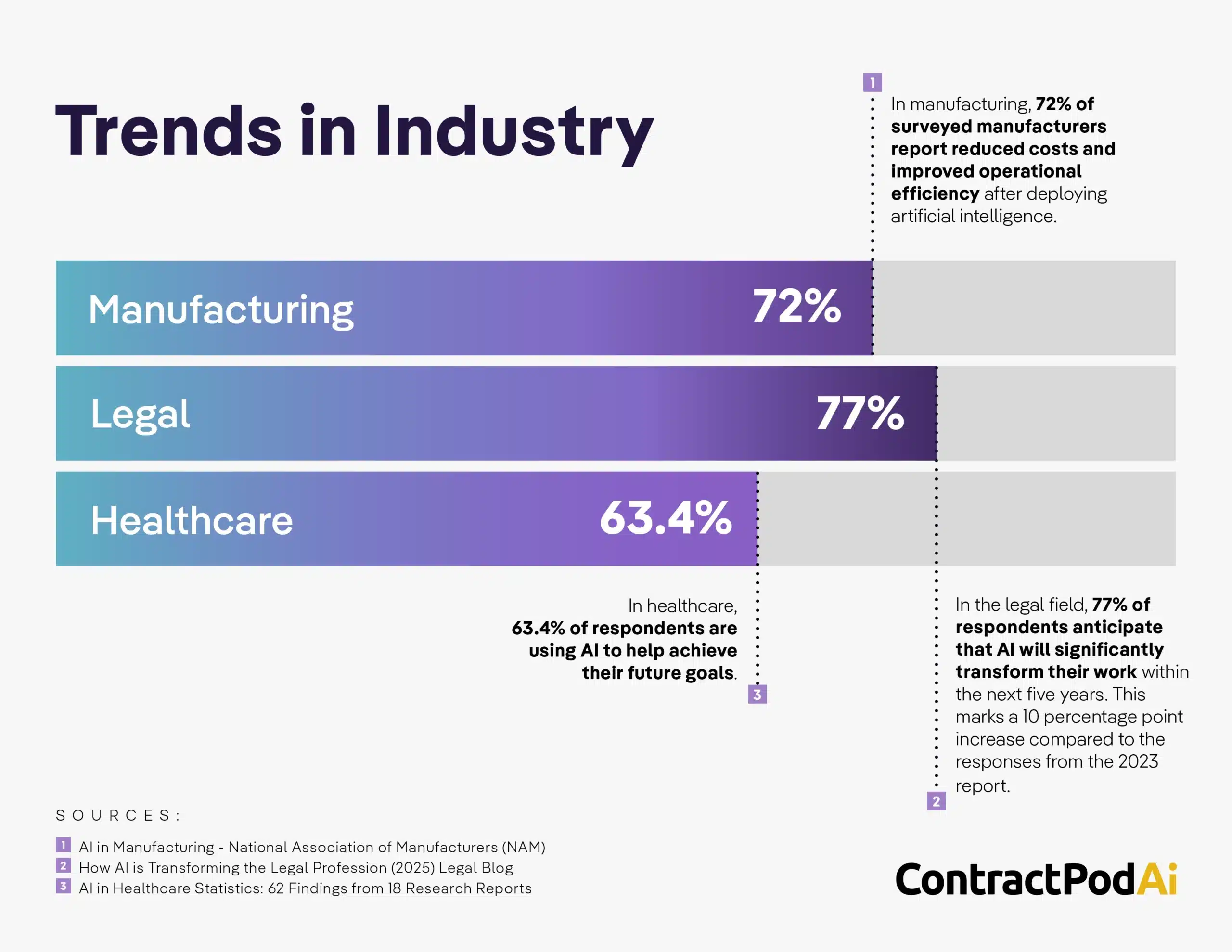
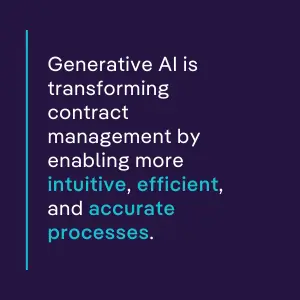
Integration of Generative AI in CLM
Generative AI is transforming contract management by enabling more intuitive, efficient, and accurate processes. Key advancements include:
- AI-assisted contract review processes that improve accuracy and reduce the time needed for legal analysis
- AI-driven conversational agents that allow users to interact with contracts using natural language
- Enhanced contract extraction capabilities that leverage AI to analyze and categorize contract terms quickly
Emphasis on Sustainability and ESG Compliance
As environmental, social, and governance (ESG) concerns gain prominence, CLM solutions are adapting to incorporate sustainability considerations:
- More contracts are integrating ESG clauses to ensure compliance with sustainability goals
- Digital transformation efforts help reduce the environmental impact of paper-based contract processes
- Organizations are focusing on supplier and partner adherence to sustainability standards by embedding ESG requirements in their contractual agreements
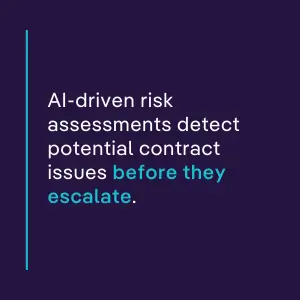
Advanced Risk Mitigation Strategies
Risk management is becoming more proactive, thanks to AI-powered tools:
- AI-driven risk assessments detect potential contract issues before they escalate
- Automated alerts help legal teams stay ahead of compliance and obligation management
- Organizations are implementing strategies to build resilience against contractual uncertainties and minimize legal exposure
Integration with Enterprise Systems
Seamless connectivity between CLM platforms and enterprise systems is improving efficiency across organizations:
- CLM tools are increasingly integrating with ERP, CRM, and procurement systems to create a unified data flow
- Reduced manual interventions streamline contract management and enhance accuracy
- Cross-departmental collaboration is improving as teams gain real-time access to contract-related data through integrated platforms
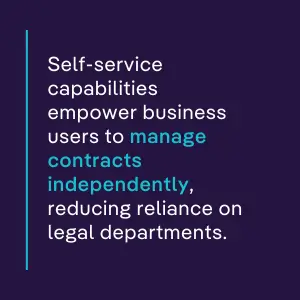
Adoption of Modular Legal Task Solutions
Legal teams are shifting toward more flexible and accessible contract management solutions:
- Modular legal task components allow organizations to customize CLM tools based on their specific needs
- Self-service capabilities empower business users to manage contracts independently, reducing reliance on legal departments
- Scalable and flexible CLM implementations ensure organizations can adapt their contract management processes as they grow
Ongoing Focus on Data Security and Privacy
With increasing regulatory scrutiny on data privacy, CLM solutions must ensure they possess robust security measures:
- Advanced security protocols protect sensitive contract information from unauthorized access
- Compliance with global data protection regulations, such as GDPR and CCPA
- Digital identity verification solutions enhance security by ensuring only authorized personnel can access contract data
In Summary
To stay ahead in the rapidly evolving CLM landscape, it is crucial for organizations to act now and embrace these transformative trends. By integrating AI, prioritizing ESG compliance, adopting proactive risk management strategies, enhancing enterprise system connectivity, and ensuring robust data security, you can optimize your contract management processes and maintain a competitive edge.
Next Steps
Immediate Steps
Begin by conducting an internal audit of your current CLM processes to identify areas for improvement.
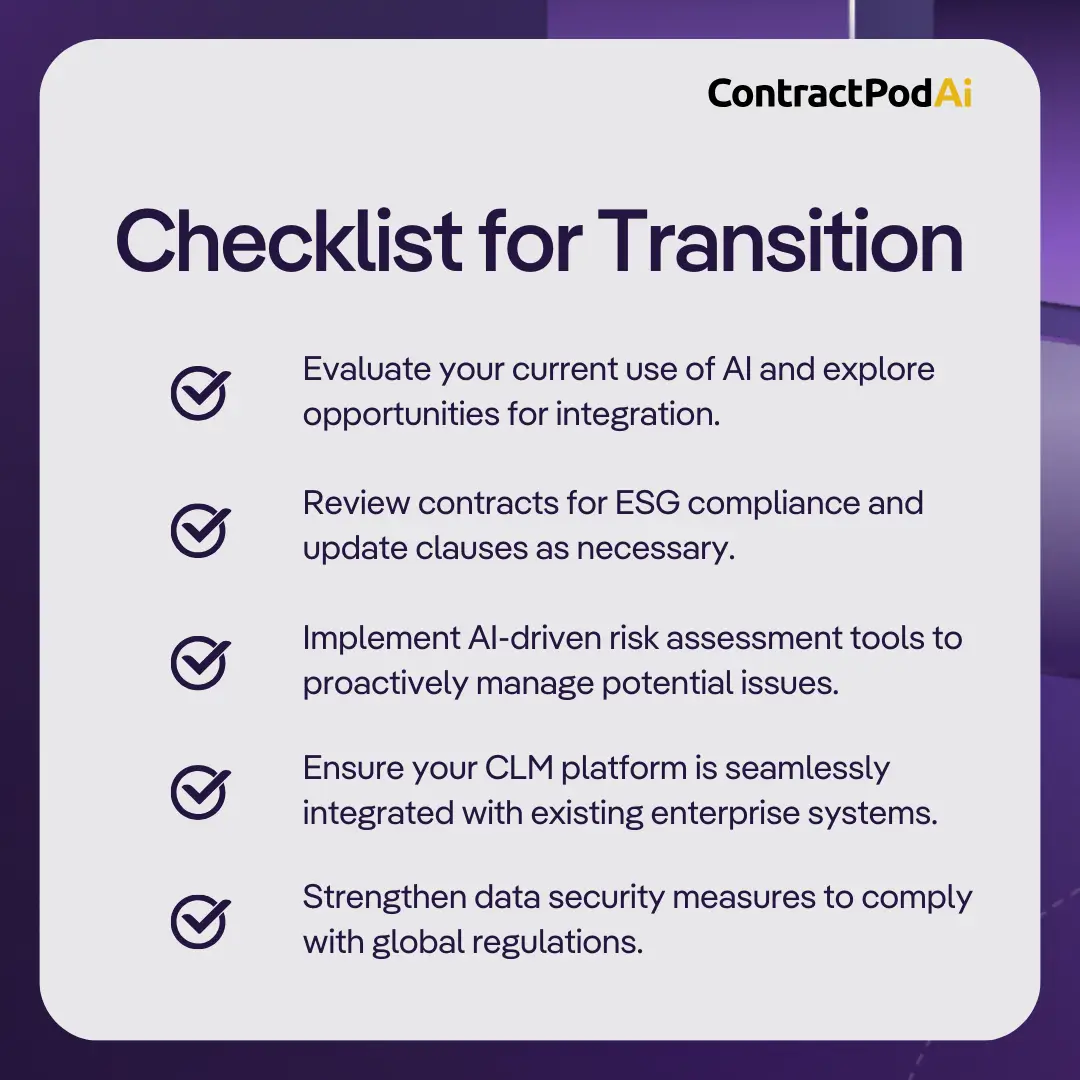
By taking these steps, your organization can effectively transition to these trends and achieve optimized contract management by the end of 2025.


